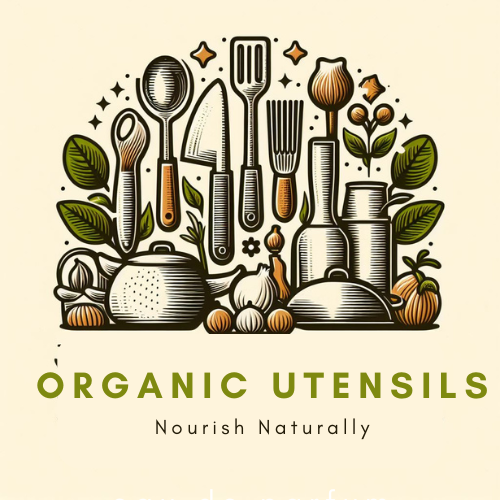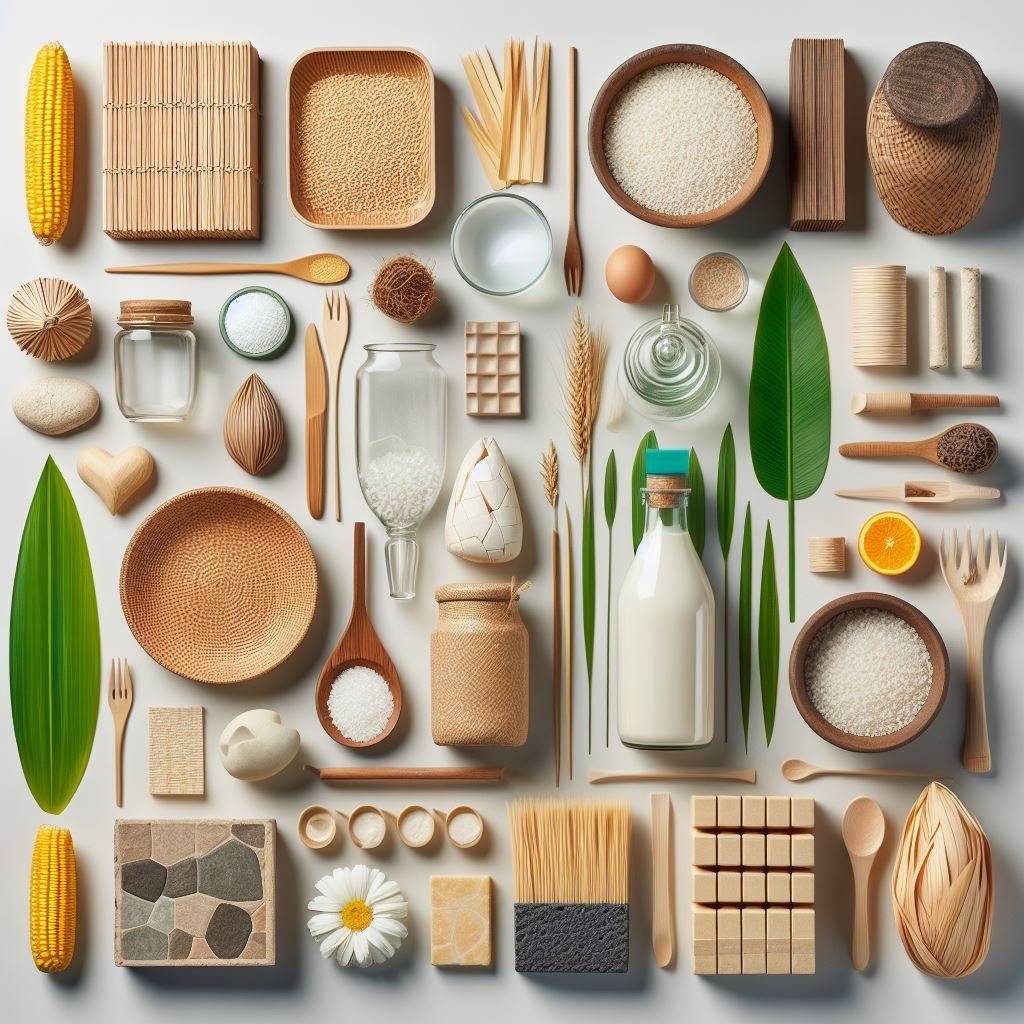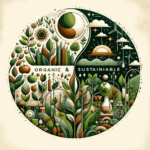Why use Organic Utensils in place of Plastic
The trend towards choosing organic utensils is gaining momentum due to the increasing consumer demand for products aligned with sustainable and health-conscious lifestyles. As we explore the reasons behind this critical shift, it becomes clear that opting for organic utensils is not just a personal preference but a collective necessity for our planet’s health.
In response to the challenges posed by plastic consumption, the shift towards organic utensils is a necessary step in the pursuit of sustainability and health consciousness. Organic utensils crafted from renewable resources offer a compelling alternative. They embody the principles of environmental stewardship and personal well-being.
Here are the top reasons why everyone is switching back to our ancestors’ idea of using organic kitchen utensils
1. Environmental Concerns
Plastic pollution is one of the most burdening environmental issues. Plastic utilization contributes significantly to the pollution of oceans and landfills. Unlike plastics, organic utensils are biodegradable and compostable, considerably reducing their ecological footprint. Research highlighted by Science Advances reveals the alarming rate at which plastic waste accumulates, underscoring the urgent need for sustainable alternatives like organic utensils.
The United Nations Environment Programme (UNEP) outlines our planet’s critical state of plastic pollution, emphasizing the urgency for a comprehensive shift in production, consumption, and disposal practices.
2. Health Risks
Studies, such as those reported in Environmental Health Perspectives, have raised concerns over chemicals like Bisphenol A (BPA) found in plastics. These chemicals are linked to health issues, including hormonal disruptions and increased risks of certain diseases. Organic utensils, made from natural materials, eliminate the risk of chemical leaching, offering a safer option for consumers.
3. Biodegradability
Unlike plastic, organic utensils can decompose naturally, reducing landfill waste and facilitating a more sustainable cycle of use and disposal.
4. Reduced Carbon Footprint
Producing organic utensils often requires less energy and results in lower carbon emissions than manufacturing plastic utensils, aligning with efforts to combat climate change.
5. Support for Sustainable Practices
Choosing organic utensils supports industries that prioritize renewable resources and sustainable manufacturing practices, contributing to the conservation of natural resources.
6. Enhanced Aesthetic Appeal
Organic utensils often boast a unique, natural look and feel that can enhance the dining experience, offering both functional and aesthetic benefits.
Types of Organic Materials that can replace plastic
Organic utensils can be made from various natural materials that are biodegradable and renewable and minimize environmental impact. Here are some common types of organic materials used in their production:
- Bamboo: One of the most popular materials for organic utensils due to its fast growth rate, durability, and antibacterial properties. Bamboo utensils are lightweight, strong, and have a minimal environmental footprint.
- Wood: Various types of wood, including teak, birch, and coconut, are used to make organic utensils. Wood provides a sturdy and durable option for cutlery and other kitchen tools, with each type offering unique grain patterns and aesthetic appeal.
- Cornstarch Bioplastics: These are made from cornstarch and other biodegradable components. They look and feel like plastic but break down much more quickly and are less harmful to the environment.
- Rice Husk: Rice husk is a byproduct of rice milling. It can be used to make durable and sustainable utensils and is an excellent way to repurpose waste material from rice production.
- Wheat Straw: Like rice husk, wheat straw is an agricultural byproduct that can be transformed into biodegradable utensils. It’s lightweight, durable, and compostable.
- Sugarcane Bagasse: Bagasse is the fibrous residue left after sugarcane stalks are crushed to extract their juice. It can be molded into various forms, making it suitable for disposable plates, bowls, and other utensils.
- Palm Leaves: Fallen palm leaves are collected, cleaned, and pressed into shape to create sturdy, compostable plates and bowls. This process does not harm the trees and uses natural materials that would otherwise go to waste.
- Edible Materials: Some innovative companies use edible materials like wheat bran, potato starch, and sorghum to create utensils that can be eaten after use or composted if not consumed.
- Mud-made utensils: Mud-made utensils, often crafted from clay or terracotta, are a sustainable and traditional alternative to modern kitchenware. From pots and pans to plates and bowls, they embody a connection to the earth and a return to eco-friendly practices.
- Glass: Glass-made utensils, characterized by their sleek appearance and durability, offer an eco-friendly alternative to their plastic and disposable counterparts. Made from natural materials like sand, soda ash, and limestone, glass utensils encompass a variety of kitchen and dining tools, from cups and plates to serving bowls and storage containers.
- Ceramic: Ceramic materials have been a cornerstone in producing kitchen and dining utensils for centuries. They offer a blend of aesthetic appeal, durability, and environmental friendliness, making ceramic an excellent choice for those looking to incorporate organic and sustainable practices into their daily lives.
These organic materials offer viable solutions to reduce plastic use and its associated environmental impact. Each has unique benefits and considerations, emphasizing its sustainability and degradation times.
| Material | Uses | Degradation Time | Why Choose This? |
| Bamboo | Utensils, straws, toothbrushes | 4-6 months in compost | Fast-growing, renewable, no pesticides, biodegradable |
| Wood | Cutlery, bowls, serving trays | Years, but biodegradable | Renewable, biodegradable, durable, compostable in pieces |
| Cornstarch Bioplastics | Packaging, utensils | 3-6 months in industrial composting | Renewable, biodegradable, reduce fossil fuel reliance |
| Rice Husk | Cups, plates, utensils | 90-180 days in proper conditions | Uses agricultural waste, durable, biodegradable |
| Wheat Straw | Plates, bowls, utensils | 3-6 months in compost | Agricultural byproduct, biodegradable, compostable |
| Sugarcane Bagasse | Takeaway containers, plates | 90 days in composting facilities | Renewable, biodegradable, uses sugarcane production byproduct |
| Palm Leaves | Plates, bowls | 2-3 months in compost | Uses fallen leaves, no tree harm, biodegradable, compostable |
| Glass | Containers, cups, plates | Not biodegradable, 100% recyclable indefinitely | Non-toxic, endlessly recyclable, durable |
| Ceramic | Dishes, mugs, pots | Not biodegradable, but long-lasting | Made from natural clay, durable, low environmental production impact |
| Edible Materials | Cutlery, cups | Days to weeks, edible | Waste-reducing, made from food, innovative solution |
| Mud | Building materials, pottery | Varies; ultimately biodegradable | Abundant, natural, energy-efficient, culturally significant |
Frequently asked questions (FAQs) regarding the use of organic utensils:
1. Why should I choose organic utensils over plastic?
Organic utensils are made from natural materials that are biodegradable, renewable, and often compostable. Unlike plastic, which can take hundreds of years to decompose and release harmful chemicals into the environment, organic materials like bamboo, wood, or compostable bioplastics break down much faster and with minimal environmental impact.
2. Are organic utensils safe to use?
Yes, organic utensils are safe to use. They are typically made from natural materials that do not contain harmful chemicals such as BPA, phthalates, or lead, which are often found in plastic utensils. Some organic materials have natural antibacterial properties, making them even safer for food consumption.
3. How long do organic utensils last?
The durability of organic utensils varies depending on the material and how well they are cared for. For example, bamboo and wood utensils can last for years with proper care, which includes hand washing and occasionally treating them with food-safe oils. Edible and compostable utensils are designed for single use but offer a sustainable alternative to disposable plastic.
4. Can organic utensils be composted?
Many organic utensils, especially those made from plant-based materials like cornstarch bioplastics, sugarcane bagasse, or wheat straw, are compostable in commercial composting facilities. However, the compostability of these materials can vary, so it’s essential to check the product specifications and local composting guidelines.
5. How do organic utensils impact the environment?
Using organic utensils reduces reliance on fossil fuels, decreases plastic pollution, and supports sustainable farming practices. Since these utensils are made from renewable resources and are biodegradable or compostable, they have a significantly lower environmental footprint than plastic ones.
6. Are organic utensils more expensive than plastic?
The initial cost of organic utensils may be higher than that of conventional plastic utensils. However, considering the environmental costs of plastic pollution and the potential health risks associated with plastic chemicals, organic utensils represent a long-term investment in personal and planet health.




